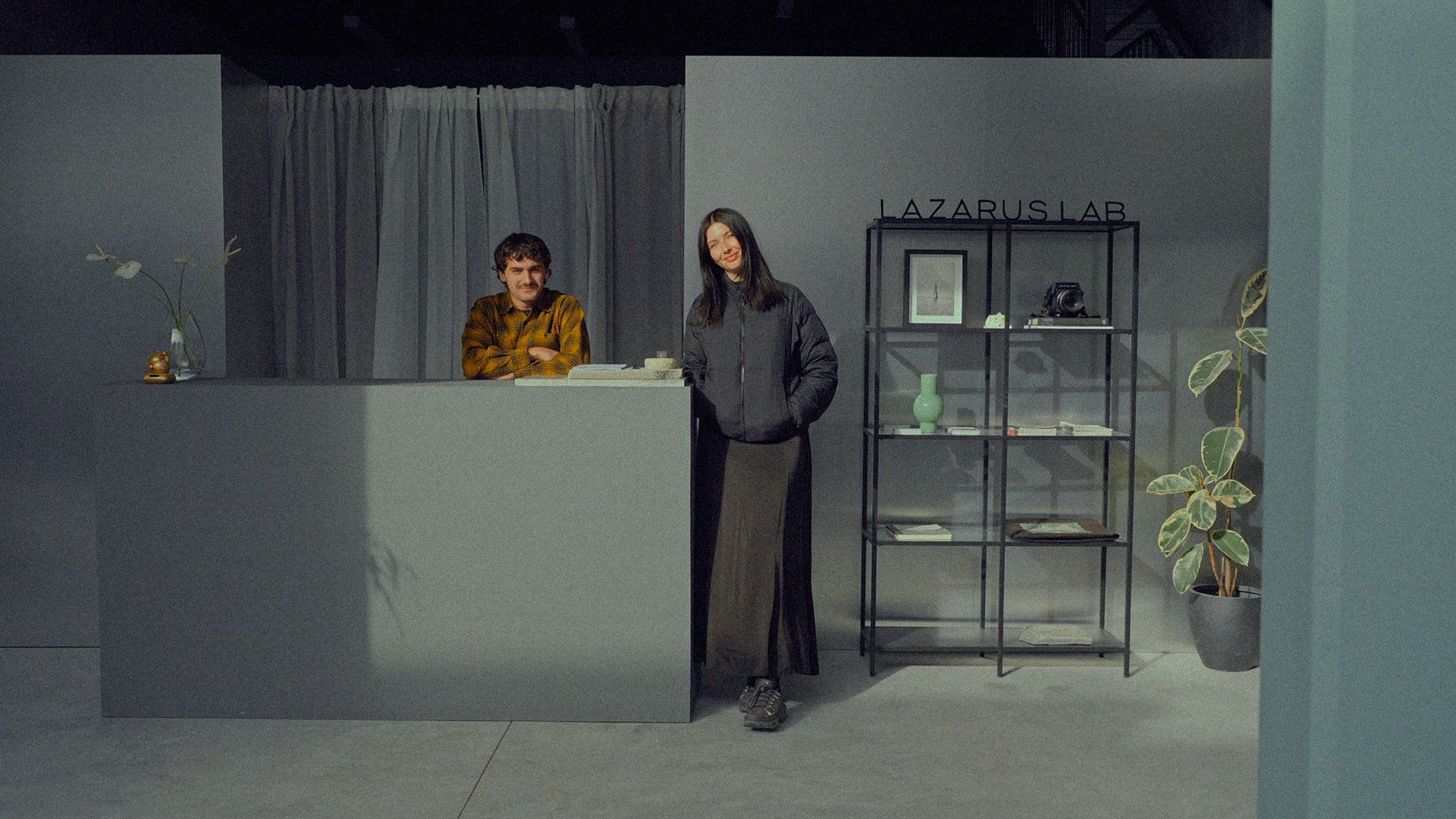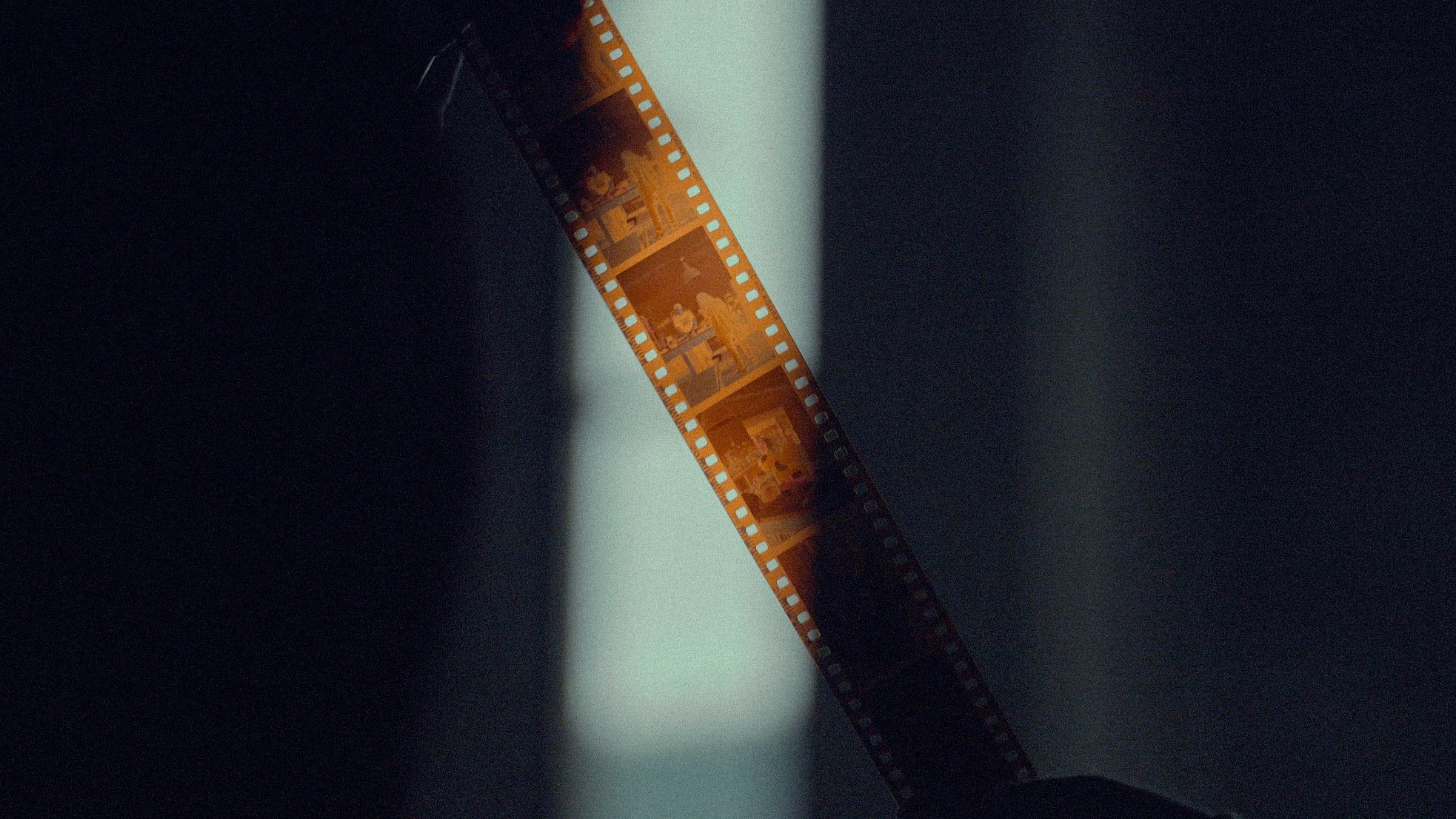Handmade: Lazarus Lab
Welcome to another episode of Handmade - the series celebrating the ancient art of making things with your hands.
For this one we spoke to Blake Pace (yes he was a part of this year’s Bright Young Things) and Morgan Wagstaff, co-owners of Lazarus Lab, a film processing lab based in Burleigh on the Gold Coast. Lazarus Lab is where we send all of our film to get developed (honourable mentions to Treehouse in Honolulu as well) and for good reason - Blake and Morgz care. No one goes into the film processing biz with the intention of making enough profits to purchase a yacht, they do it because they care about giving people back moments in the form of a photograph. For the analog love of it. Much like a print magazine. Running a film lab is a lot more stressful than you probably think because they are responsible for developing people’s work and they only get one shot to make it happen so they better not fuck it up. Plus they have to handle your nudes and continuously see amazing photographs ruined by a finger. If god existed this would be the work that he would do, which is kinda funny considering the name Lazarus is based on a biblical character who spent some time in hell before some other guy called Jesus bought him back. Even though Blake and Morgz aren’t in the slightest bit religious, it was a fitting name for the dying but now resurrected film industry.
Shot by Jake McCann (winner of the inaugural Monster Children Short Film Awards) Handmade: Lazarus Lab is a little insight into the magic that happens to get your roll of film into a candidly captioned ‘got some film back’ instagram post. Plus we chatted to Blake and Morgz about some hot tips for anyone who might be sending in a few rolls, both budding and established photographers alike.
Blake (left) & Morgan (Right). Aren’t they just the sweetest.
When you say a good negative creates a good scan - bringing it back how do we get a good negative?
Any lab worth their salt should put effort into making sure customers' negatives are as great as they can be. From our end, we make sure our machines are maintained and the developing chemicals are within parameters. We do this by testing them in the morning and throughout the day to monitor any changes and make sure everything is trending correctly. For colour film that's done in our Noritsu developing machine, the chemistry affects colour and contrast. To get the most out of a B&W negative we process the film according to the film stock. For example Ilford HP5 400 has a developing time of 6.5 minutes whereas Kodak Tmax 3200 has a developing time of 11.5 minutes. Other labs will just throw all the rolls in together resulting in some film being overdeveloped and others under. Doing the B&W by hand instead of using an automated machine also gives greater control of the agitation, resulting in smoother grain and contrast. We can often diagnose problems pretty easily with a quick glance of a negative and they are always our first point of reference for troubleshooting camera issues.
From a customer perspective, to ensure your film will reach its potential in the development and scanning it's important to look after it, both before and after shooting. No glove boxes in summer and definitely don't put it through airport security scanners on your trips. We see so much x-ray damaged film in particular, and when it's a massive campaign for an international brand that can be a scary email to send. And get your film in as soon as you can after shooting and keep it refrigerated.
What is your first piece of advice for someone just starting out taking film photos?
Some advice for people starting out. Know your camera inside out, and if you don't get very familiar. Learn the capabilities and limitations. I guarantee if you get onto Youtube and search your exact camera model someone has made a video manual on it and there's probably a million video reviews on there. Wrap your head around the basics of exposure including aperture, shutter speed and ISO. Without this, probably no images, so definitely a good idea to figure this out. Get a light meter or at least know how to use one. Film needs more light than people think and doesn't like being underexposed, so try not to do that. Once you've got the camera side down, learn about film stocks. There are quite a few, but generally speaking you get what you pay for with the professional ranges. Think about what you're shooting and where, and go from there. Again, online resources are your best friends, save your cash and make the correct decision the first time. Also if you let your lab know it's your first time they should be able to offer extra feedback or additional notes to help for the next rolls. We try to do this and apparently it's helpful.
What is something you wish more people knew about film developing (ie annoying customers)?
We wish more people knew how long the whole process takes when you actually care. Although we use some machines in our process, everything we do has to be touched by someone. It would be so much easier for us to take shortcuts so people could get their film back sooner, but we just can't do that. There are plenty of establishments that just pump everything out on automatic and don't make any adjustments or corrections but that's never going to be us. We know how good film can look and we want everyone in our community to have access to that. Also we are a super small team with less equipment than bigger labs so there are limitations on how much we can actually do. So yeah, I guess I'm saying that people would be more patient if they knew how much work goes on behind the scenes and maybe they wouldn't be in such a rush.
How many people force you to look at their portfolios when they drop film in?
Thankfully none as yet! (Laughs) That would be awkward.
What are some things we can do as customers that make your lives easier as film developers?
Read up on our process before you hand film in, fill out the form correctly, know your email address (crazy but true), use a flash at night if you don't want blank frames, tell your wedding guests to use flash at night if you don't want blank frames. Be patient and if you aren't going to be patient at least be kind and understanding.
What if my film gets stuck somehow and I can’t rewind it in the camera - what do I do to rewind it?
If your film gets stuck in the camera and it's feeling really tense or making a crunching noise, it's probably best to just bring it in to your lab. By all means jump on Youtube and make sure you're doing everything correctly, but make sure you're gentle with your camera or else you'll tear or snap the film and have to bring it in anyway. Don't ever open the back and if you do shut it really quickly. We've definitely seen some things at this point but keeping the film in the camera is normally the safest bet. We'll salvage what we can.
What do you want to say to people who call for their scans an hour after they’ve dropped their rolls off?
Unfortunately a one hour turnaround isn't going to be a possibility for us unless all of our customers disappear somewhere, but I hope people can understand that the service and quality of the end product will be exponentially different. There's room for everyone and we get that in the society we live in everyone wants things nearly instantly. I also think this comes from a certain lack of understanding, so we always do our best to educate. As a general rule I think if someone is offering a service like that it means they aren't busy or they aren't putting the work in to get the best out of your film. Something has to give unfortunately. All this is to say we offer a rush service which guarantees the film back by the next business day which is definitely great for when the anticipation is too much.
Be honest, do you judge people’s photography?
I think a lot of people think we do and have a lot of anxiety about it, but the reality is we see so much every day we are super desensitised. The everyday happy snaps are great and we definitely don't expect everyone to be super artsy or nail every shot. Being on the Gold Coast we definitely get a lot of surf, sun and sand, so seeing diverse perspectives or content is always refreshing. In saying that, occasionally images or rolls will really stand out when we're scanning and that's how you know they are something special. It might be that the subject matter is interesting or different, the light is great or someone has nailed the exposure and the developing is perfect. So the answer is yes, I suppose we judge positively.
Alright can I ask what is the craziest photo you’ve seen then?
Births, both via C-Section and natural. Deaths, where someone is alive, with colour in one frame and then gone the next. Baz Luhrmann’s film. Archival music shots, including twenty year old Michael Hutchence at Bondi Lifesavers. BTS from Hollywood movies filmed here. Expired film from 1963 shot around Newcastle and Sydney. Any travel photos in remote locations are always fun because it means we get to go there without going there.
Anything else you want to say?
What we do is super intimate. We get an insight into people's lives from their images and what they value enough to take photos of. Often we'll have developed someone's photos for years but have no idea what they look like. It's an odd dichotomy to know someone so deeply but then also not at all.
So many local brands, businesses, creatives and just regular people use our services and it's been an honour to provide somewhere for that to live. We're so grateful for the people we've met and the friends we've made through Laz. We hope it's inspired someone to pick up a film camera either for the first time or for the first time in 20 years.



